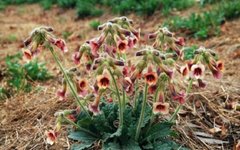
Daily Herb Study
熟
地
黄
补
血
壹
Introduction to Chinese Medicine
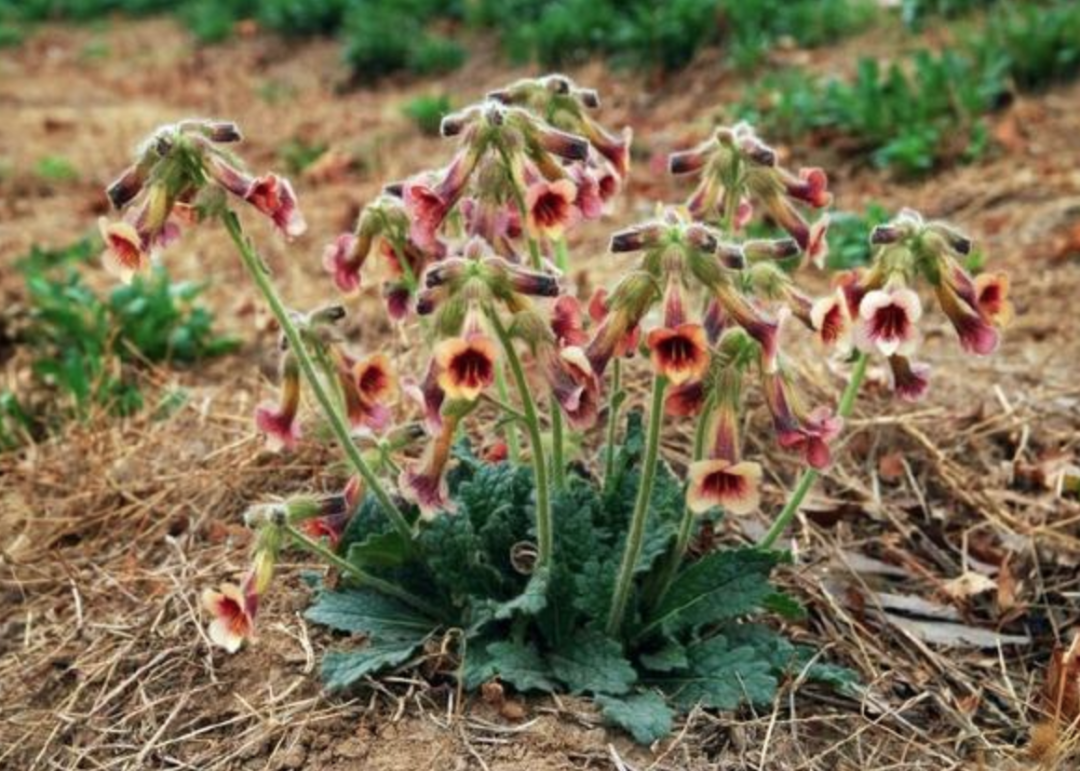
Also known as: Shu Di, Da Shu Di, Huai Shu Di, Di Sui, Jiu Di, Shu Bian.
Taste and Properties: Sweet, slightly warm. Enters the Liver and Kidney meridians.
Functions: Tonifies blood, nourishes yin, benefits essence, fills marrow.
Category: Blood tonics
Rehmannia glutinosa, a Chinese medicinal herb, is primarily used for nourishing yin and tonifying blood. It treats conditions such as yin deficiency with insufficient blood, weakness in the lower back and knees, cough due to deficiency heat, nocturnal emissions, menorrhagia, irregular menstruation, diabetes, frequent urination, deafness, and blurred vision.
贰
Chinese Medicine Verse
Shu Di is slightly warm, nourishes the kidneys and tonifies blood,
Benefits marrow and fills essence, turns hair black.
叁
Common Combinations
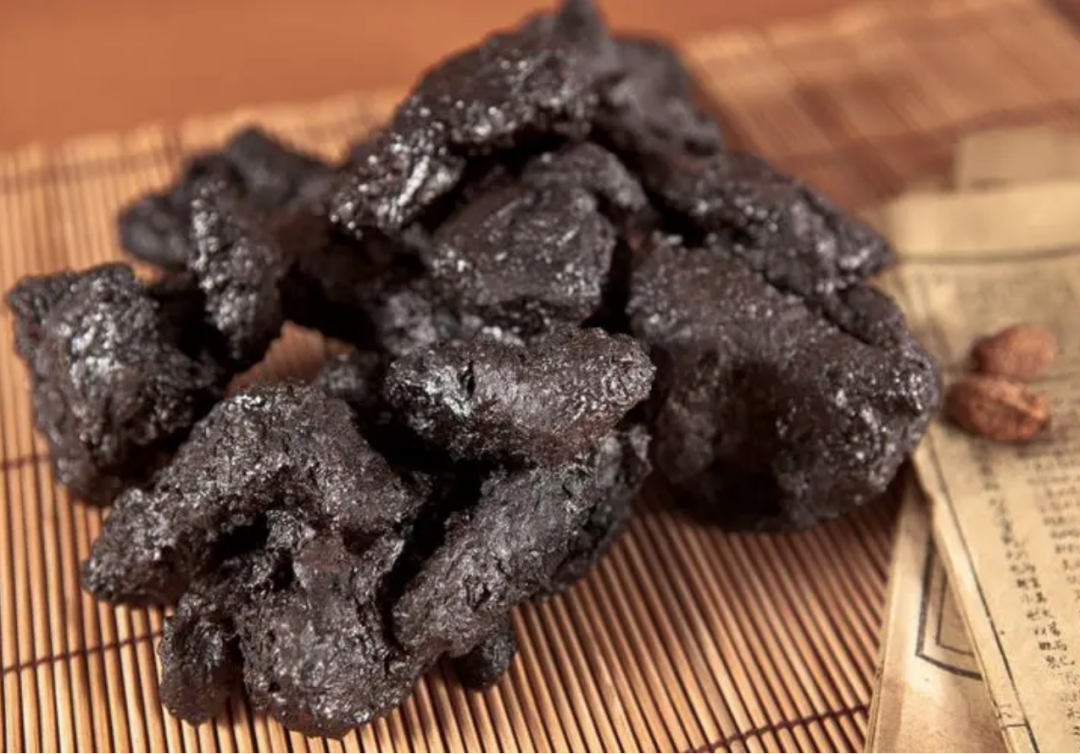
Shu Di Huang with Shan Zhu Yu
Shu Di Huang excels at nourishing the Liver and Kidney, enriching blood and filling essence; Shan Zhu Yu is adept at warming and tonifying the Liver and Kidney, consolidating essence and urine, preventing involuntary leakage.
These two herbs combined can enhance the effects of nourishing the kidneys and yin, and consolidating essence, suitable for symptoms of dizziness, tinnitus, weakness in the lower back and knees, nocturnal emissions, and night sweats (excessive sweating during sleep that stops upon waking) due to Liver and Kidney yin deficiency.
Shu Di Huang with Shan Yao
Shu Di Huang is proficient in tonifying blood and nourishing yin, replenishing essence, and promoting bone marrow development; Shan Yao is good at tonifying the kidneys to secure kidney essence and benefiting the spleen and nourishing yin.
These two herbs combined can enhance the effects of nourishing yin and tonifying the kidneys, suitable for kidney deficiency with nocturnal emissions and enuresis.
Shu Di Huang with Bai Shao
Shu Di Huang excels at tonifying blood and nourishing yin, replenishing essence, and promoting skeletal development; Bai Shao is skilled at nourishing blood and restraining yin, treating pain caused by Liver yin deficiency and insufficient Liver blood.
These two herbs combined can enhance the effects of nourishing yin, tonifying the kidneys, and nourishing blood, suitable for menstrual irregularities, blurred vision, and unclear sight due to insufficient Liver blood and weakened Liver and Kidney function.
Shu Di Huang with Xi Xin
Shu Di Huang excels at tonifying blood and nourishing yin, while Xi Xin is good at dispelling wind and scattering cold.
These two herbs combined can enhance the effects of tonifying the kidneys and dispelling cold, suitable for kidney deficiency with lower back pain.
Shu Di Huang with Sang Ji Sheng
Shu Di Huang excels at tonifying blood and nourishing yin, filling essence and benefiting marrow; Sang Ji Sheng is good at tonifying the Liver and Kidney, nourishing blood and stabilizing pregnancy.
These two herbs combined can enhance the effects of tonifying the kidneys, filling essence, and nourishing blood, suitable for pregnant women experiencing frequent fetal movement and even vaginal bleeding due to deficiency of Liver and Kidney essence and blood.
Shu Di Huang with Ma Huang
Shu Di Huang is known for tonifying blood, nourishing yin, and filling essence; Ma Huang is good at inducing sweating, relieving asthma, and dispersing cold and stagnation.
These two herbs combined can enhance the effects of tonifying the kidneys, filling essence, and dispersing cold and stagnation, suitable for conditions of cold damp obstruction such as yin abscess, bone abscess, and cough due to kidney deficiency with cold phlegm, as well as asthma during menstruation.
肆
Distribution Areas
Distribution regions:
Found in Hebei, Shanxi, Inner Mongolia, Liaoning, Jiangsu, Zhejiang, Anhui, Shandong, Henan, Hubei, Hunan, Sichuan, Shaanxi, and other areas.
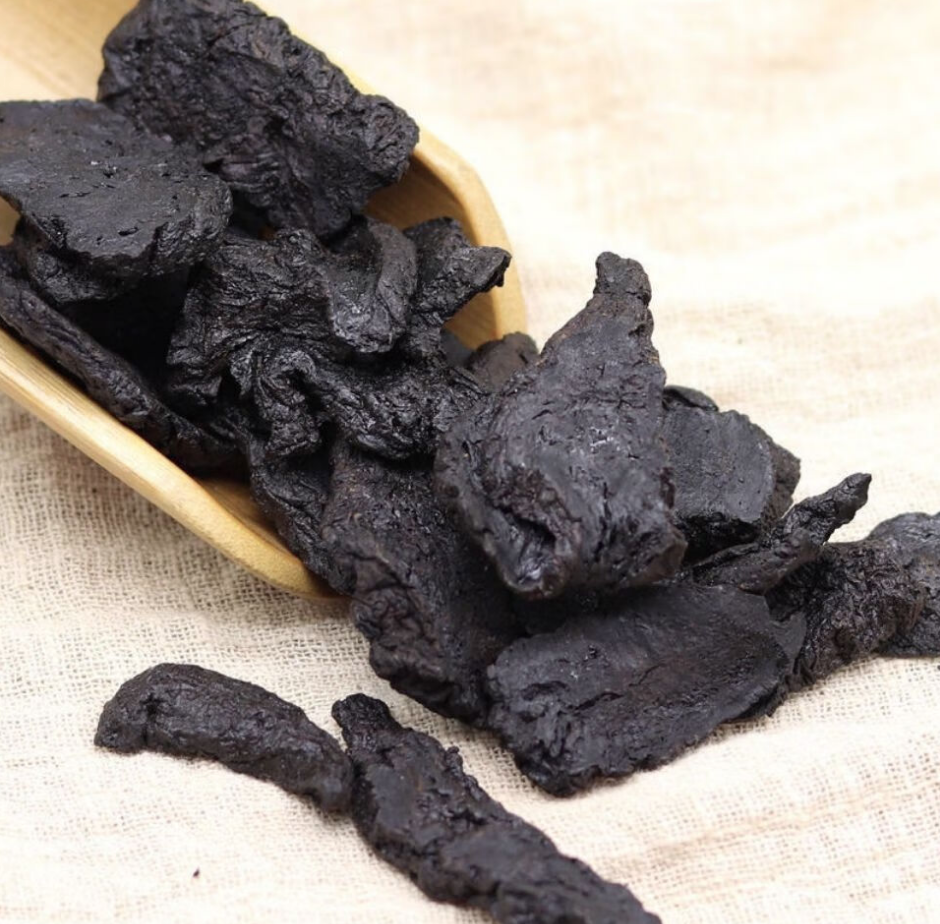
伍
Folklore
It is said that when Sun Simiao was 101 years old, he still traveled everywhere. One evening, he came to a small village by a river and saw an old man holding a dragonfly in his left hand and crying loudly with his right hand covering his buttocks. Sun Simiao approached the old man, who looked older than him, and comforted him, asking, “Why are you crying, old man?” The old man replied, “My grandfather hit me.” Sun Simiao was shocked, asking, “How old are you?” The old man said, “I just celebrated my 365th birthday, and because I was playing too much, I forgot to drink Shu Di tea, so I got hit.” After saying this, he began to cry again. Sun Simiao, curious, asked, “Where is your grandfather?” The old man pointed, saying, “The person lying at the door counting stars is him.” Sun Simiao walked over and saw a much younger man lying on a straw coat, completely focused on counting stars, with a little girl beside him fanning away mosquitoes. Sun Simiao asked the girl, “Who are you fanning away mosquitoes for?” The girl replied, “This is my great-grandson, he has a bad temper and often hits children. Sigh! How can we educate children like this? It’s all because my old man spoils him.” Sun Simiao was even more curious, asking, “Where is your old man?” The girl said, “He went to catch fish by the river.” Sun Simiao asked, “Can you tell me what Shu Di tea is?” The girl replied, “It’s porridge made from Shu Di Huang and rice. We use it in spring to harmonize the stomach and reduce fire, in summer to cool down and relieve irritability, in autumn to nourish yin and eliminate dryness, and in winter to tonify blood and dispel cold. It must be eaten every morning; today the naughty child forgot to drink it and got punished, as he should!”
Sun Simiao was deeply moved, realizing that he thought he was already old, but there are always others who are older. He then asked the girl for a bag of Shu Di Huang and, based on the characteristics of Di Huang and his lifelong studies, developed the processing technique of nine steams and nine dries for Shu Di Huang. It is said that because he often consumed Shu Di Huang, Sun Simiao lived another forty years, passing away at over 140 years old without illness.
陆
Summary from Ancient Texts
From “Zhen Zhu Nang”: “Greatly tonifies blood deficiency, opens blood vessels, and benefits energy and strength.”
From “Ben Cao Gang Mu”: “Fills the marrow, promotes muscle growth, generates essence and blood, tonifies the five internal organs, opens blood vessels, benefits the ears and eyes, and turns hair black. For men with five labors and seven injuries, and women with uterine bleeding, menstrual irregularities, and various diseases during pregnancy.”
From “Ben Cao Cong Xin”: “Nourishes kidney water, fills the marrow, opens blood vessels, benefits true yin, sharpens hearing and vision, and turns hair black.”
From “Yao Xing Ge Kuo Si Bai Wei”: “Shu Di is slightly warm, nourishes the kidneys and tonifies blood. Benefits marrow and fills essence, turns hair black.”
From “Ben Cao Li Hai”: “[Harm] Shu Di is a medicine for yin stagnation and is not suitable for diseases of the spleen and stomach. For those with phlegm in the chest and diaphragm, obstructed qi pathways, and stagnation of ascending and descending, this medicine should be avoided. For those with weak stomach qi, excessive consumption of Di Huang will cause bloating and loss of appetite; how can the illness be cured? [Benefit] Sweet and slightly warm, tonifies the spleen, liver, and kidneys, nourishes blood and yin, and is a primary medicine for strengthening water.”
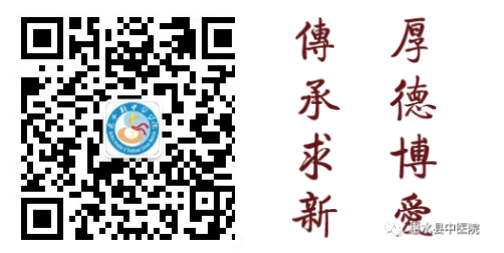
Scan the QR code to follow this public account
Source: Longjiang Traditional Chinese Medicine Culture(Some images in the text are sourced from the internet, non-commercial use, only for public welfare and popular science. If there is any infringement, please contact for removal)


Huishui County Traditional Chinese Medicine Hospital Contact Numbers
Emergency Department: 0854-6280855
General Surgery: 0854-6280670
Orthopedics: 0854-6281973
Proctology, Dermatology (Liver and Gallbladder): 0854-6230118
Cardiology and Neurology: 0854-6283080
Pulmonology: 0854-6283189
Geriatrics, Endocrinology: 0854-6281512
Dialysis Room: 0854-6282912
Spleen and Stomach Diseases, Rheumatology and Kidney Diseases: 0854-6230630
Intensive Care Unit: 0854-6280843
Acupuncture and Tuina: 0854-6282127
Obstetrics and Gynecology: 0854-6281291
Pediatrics: 0854-6531035
Rehabilitation: 0854-6283176
Health Check-up: 0854-6283105
Otorhinolaryngology: 0854-6281793
Anesthesia: 0854-6280603
Pain Management: 0854-6230085
Traditional Chinese Medicine Outpatient Treatment Room: 0854-6230021
Pre-hospital Emergency: 0854-6289999
Second Outpatient Department: 0854-6223500

